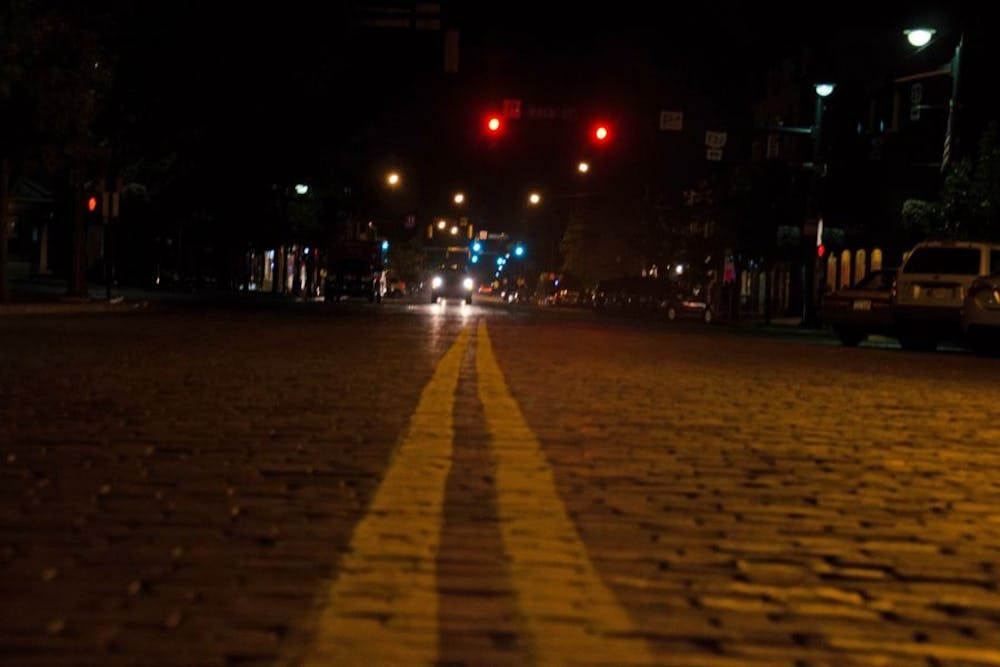By Richard Campbell and James Tobin
The day after Timothy Fresch died last week at the age of 22, the staff of The Miami Student began to compile material for a brief portrait. They asked more than a dozen of Fresch's friends for comment. All but two declined. So, with quotations from those two friends - one from high school, one from Oxford - a reporter assembled a story.
It began and ended by showing why Fresch was loved. He was "the one who tried to cheer everyone up." "He brightened everyone's mood," "naturally loved everyone" and was "the nicest dude you'll ever meet."
The story also showed why Fresch may have died. He was a reckless drinker who encouraged others to drink to unconsciousness. He "had a lot of demons" and retained habits learned in high school - "over consumption and pushing your limits."
No official report had been released, so no reference was made to the cause of death. But the Student's original report said police suspected the influence of alcohol or drugs because Fresch appeared to have choked on his vomit. No objection was heard about that story.
The new story was published on Tuesday, April 19.
Then came complaints unusual for their volume and vitriol.
The Student had painted "an ugly image" that was "deeply disrespectful to [Fresch's] family and close friends." It showed "poor taste" and "bad judgment." The Student had lost its "moral compass."
As longtime practitioners and teachers of journalism, we take a different view. We think the story performed a public service. We likely would have written it a little differently, but not as critics might wish.
We would have said explicitly what the story only implied - that Fresch's death raises profoundly troubling questions about the toxic mixture of pleasure-seeking, self-medication and substance abuse that damages many students at Miami and elsewhere, especially those made vulnerable by mental illness.
If we treat such deaths as isolated events - each sad and regrettable, but not part of an epidemic, and no one's fault - then we are simply standing by as the toxin spreads. And it won't ease the terrible loss for Fresch's family and friends to ignore the circumstances of his death.
For loved ones, an unnatural death is a personal catastrophe. But such a death has a public meaning, too. The journalist must weigh private pain against the public good that may be served by reporting on this systemic national crisis.
One way to begin to redeem such a loss is to face the problem squarely. With Tuesday's story, the Student took a step in that direction, and not for the first time.
And as disturbing as the truth may be, it's better to mourn the loss, then face facts - and sooner, while the tragedy occupies our minds, not later, when routine dulls our shock. Many families want the truth told about the preventable deaths of loved ones. That should be our response, too.
Was the Student's portrait of Fresch incomplete, as critics said? Of course. As our colleague David Wells said this week, "All we are capable of is telling the truth as we know it to be at a single point in time."
Critics said the Student "crossed a line."
We think we know which line they meant.
One side of the line is daylit - a polite, respectable realm where students seek good grades and build impressive resumes. The other is a darker side - the realm of bars and house parties, where all too often there is blackout drinking, drug abuse and sexual aggression.
Every student knows about both, and the unspoken rule is that when you're on the polite side of the line, among faculty, parents and prospective employers, you shall not speak of the other realm.
That was the rule the Student broke by quoting a couple guys speaking frankly, in night-side language, about what often happens on the darkest side of the line - not just in Oxford, but in Columbus, Athens, Bloomington, Ann Arbor, Madison and across the country. Reams of survey data document the trend.
Honest reporting on this crisis calls us all to task - faculty who cancel classes on Green Beer Day; a Greek system that seems incapable of self-regulation; parents who ignore early signs of alcohol abuse or mental illness; alumni who hear of rampant drinking and drugs and think: "Well, it's college; I did that"; and especially students who cheer when friends drink or dose themselves toward oblivion.
What we hope is that amid the outrage, much of it sanctimonious, over a newspaper story, a few students will read that story and think: "That might have been me."
We hope, too, that The Student's story will spur our own community to refocus on this national crisis, rather than simply to mourn the loss of Timothy Fresch and move on.
Richard Campbell is chair of the Department of Media, Journalism and Film. James Tobin, faculty advisor to The Miami Student, is a professor in the department.

